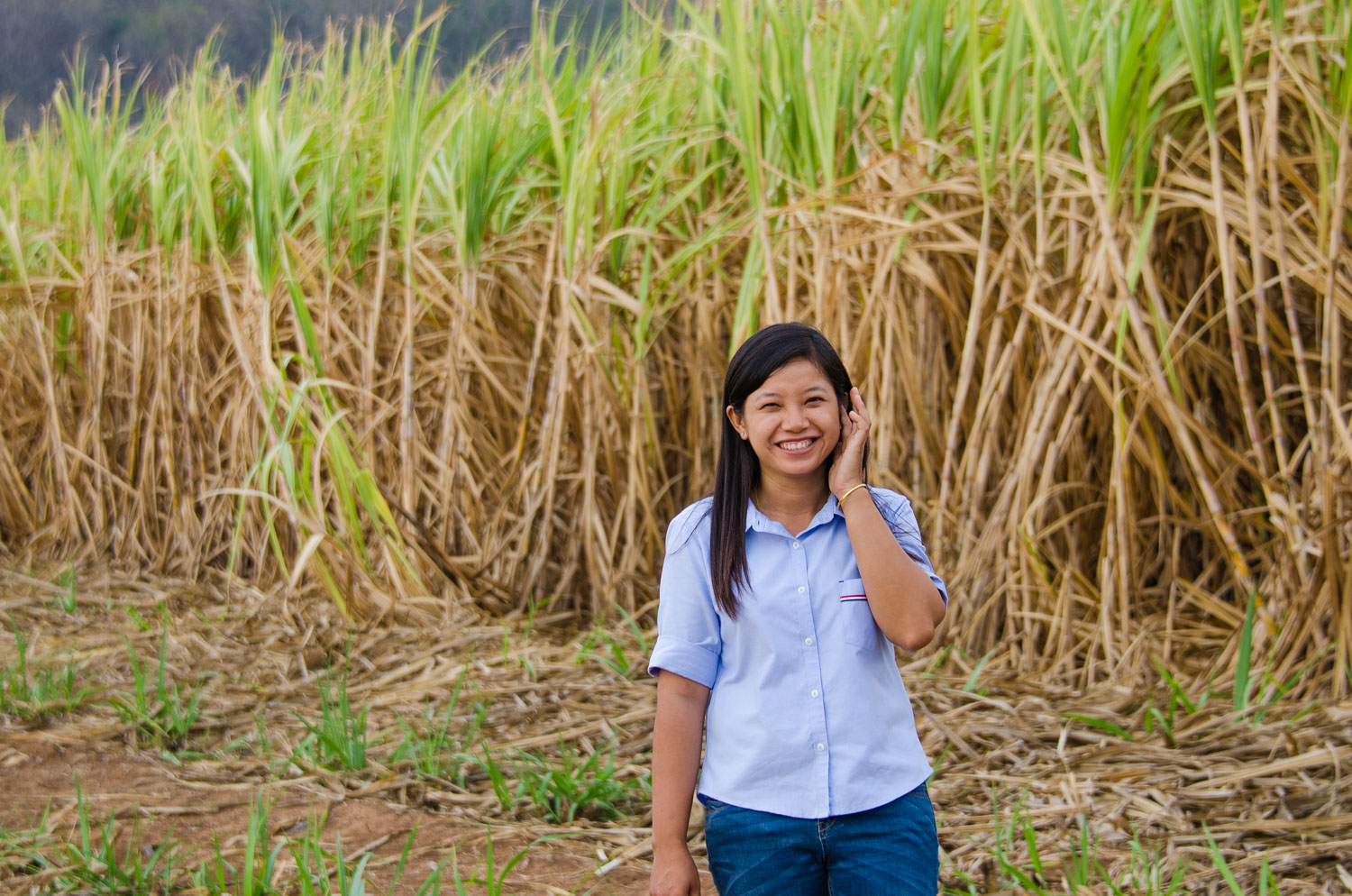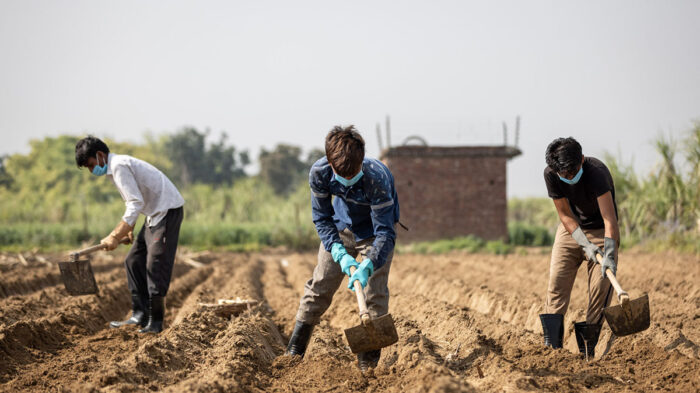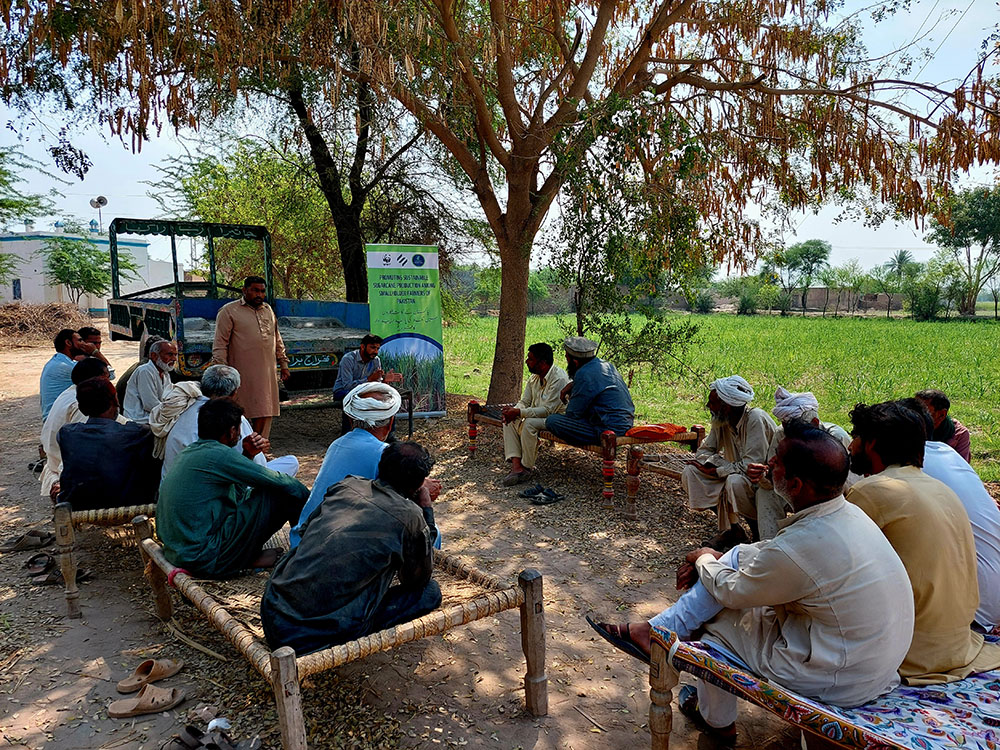How can brands support the smallholders in their sugarcane supply chain?

Sugarcane smallholder farmer Chiraphon Rose Bhunpeng, Saraburi province, Thailand. Credit: Joe Woodruff
Smallholder farmers are the backbone of many sugarcane supply chains around the world. Some of the biggest sugarcane producing countries, such as Mexico, Thailand, India and Pakistan, heavily rely on smallholder farmers for most of their volumes.
The contexts and challenges of sugarcane smallholders are complex. For buyers, who operate in lengthy supply chains with multiple intermediaries, getting those insights isn’t straightforward.
Yet, successful partnership with these farmers requires a deep understanding of, and adaptation to on-the-ground realities. Recognising smallholders as the roots of the sugarcane supply chain is key; when their needs are met, benefits flow throughout the value chain.
This piece is an invitation to brands and downstream companies to delve into the contexts of smallholder farmers and explore avenues to let them thrive.
The complex definition of smallholder farmers
Bonsucro defines smallholder farmers as those cultivating less than 25 hectares of land.
However, the definition varies globally, highlighting the need to grasp the diverse contexts in which these farmers operate. For instance, the size of small-scale farms varies significancy. In India, most smallholders farm on less than two hectares; in Pakistan the average size of a farm is 2.6 hectares, while in Mexico most smallholders farm on plots under 5 hectares.
Operational methods also differ; some smallholders may just have their family working on the farm, while others hire workers, especially for cane cutting.
Beyond the size of the land, we should take a wider, holistic approach to what ‘smallholder’ means. The ‘small’ in ‘smallholder’ reflects various aspects of their realities and challenges, such as knowledge of the global market and of business practices, sustainability methods, access to finance, political influence, and buying power. The complexity of this multifaceted word shows us the challenges that we, as an industry, must help to address.

DCM Shriram sugarcane plantation, India, 2021
Challenges faced by sugarcane smallholder farmers
To maximise sucrose, sugarcane needs to be crushed quickly after harvest – usually within 24 to 48 hours. Because it can’t travel far, most farmers work near a mill and only supply that one mill that sells their product. That means they heavily rely on a mutual relationship with their closest mill.
Another barrier to market access is the changing environmental regulation; and pressure to comply with sustainability standards. For smallholders, the cost of compliance is proportionately far bigger than the cost of compliance for a corporation.
Smallholder farmers may be in a vicious or in a virtuous circle when it comes to growth and access to more sustainable practices.
When a buyer orders a quantity of sustainable product from a mill, choosing to buy from a bigger grower can be an easy solution for the miller, especially in countries where smallholders compete with farming companies. That is less of a risk in countries like Mexico, where 90% of sugarcane is grown by smallholders.
Smallholders often have low financial capacity and limited access to credits, and in some countries, little government support. As a result, investing in inputs, technologies, and practices that will improve their productivity and sustainability may not be possible. This can leave them marginalised.
Smallholder farmers can be better equipped to develop and grow if they have a strong relationship with the mill they supply, getting safer output for their crop and more capacity to develop and improve. A strong relationship with the mill also sends a positive signal to banks and investors, who often are more prepared to lend to a farmer who is looked after by a mill.
Adapting to a changing climate
The challenges faced by smallholders are increasingly exacerbated by the climate crisis.
More frequent heatwaves, drought and weather events are impacting yields, crop quality and income. Working under high heat also threatens farmers’ health, with higher risk of heat stress and chronic kidney disease. These challenges can largely vary between regions, countries and even between different parts of a country. Getting to know the local context and the challenges brought by changing weather patterns is key to understanding smallholders’ realities.
With growing pressure from the public and from policy to reduce their environmental impact, downstream companies are doing big work on climate mitigation. But the priority for smallholders is adaptation. While their operations, livelihoods and health are under threat, we cannot expect farmers to focus on mitigating their environmental impact. We must help them to adapt first.

Sugarcane plantation, Mexico, 2020
Using sugarcane to grow people
The first step to facilitating that adaptation is listening to smallholders, and proactively learning about their needs and barriers.
Their specific contexts have a major importance; they can largely vary in terms of climate conditions, policy, business practices and more – sometimes even within one country. Let’s keep in mind that a blanket approach doesn’t work.
Long-term partnership helps to provide those insights of local challenges. Close collaboration with mills and their supplying smallholders is crucial not only for adaptation to changing conditions, but also for the improvement of farming practices. This involves:
- Treating farmers as partners rather than mere suppliers, and prioritising the growth and development of people alongside sugarcane cultivation;
- Committing to their supplying farms, and assisting them in improving their practices, rather than seeking alternative sources when challenges arise.
- Supporting smallholders in developing a more business-oriented approach, such as improving their business practices and identifying inefficiencies in their operations.
There is a balance to be found between using people to grow sugarcane, and using sugarcane to grow people.
Support goes beyond money
Supporting smallholders requires a holistic approach that combines financial assistance with knowledge sharing, resource allocation, and adaptive strategies.
For instance, fair pricing and revenue-sharing models can enable smallholders to invest in meeting new regulatory and sustainability standards. This requires patience and groundwork. Many smallholder farmers are not ready, and they can take several years to be.
When they are ready and compliant, brands should ensure that they receive fair compensation for their produce and have a stake in the revenue generated – incentivising sustainable practices.
But the role of brands goes beyond providing funds; they have the influence and the ability to make connections to drive positive change throughout their supply chain. Appropriate and effective support requires listening to the needs of smallholders and their communities.
Through capacity building projects funded by the Bonsucro Impact Fund (BIF), buyers including PepsiCo, and Shakarganj Sugar are already working with smallholders to build climate adaptation and resilience.
All sugarcane buyers that are Bonsucro members can support such projects by either:
- applying for a BIF grant for an initiative that supports smallholders;
- or by purchasing Bonsucro Credits; all trades are charged a transaction fee, around 50% of which is invested into the Bonsucro Impact Fund.

Smallholder farmers training, as part of the project ‘Promoting sustainable sugarcane production among smallholders of Pakistan’, run by WWF Pakistan and Shakarganj Ltd and supported by the Bonsucro Impact Fund. Jhang district, Punjab province, Pakistan. Credit: WWF Pakistan
Building a more inclusive value chain for sugarcane farmers
One of the main ways that Bonsucro seeks to create more inclusive and sustainable value chains is by making certification more accessible to smallholder farmers.
To widen access to certification, we created the Production Standard for Smallholder Farmers in 2018. To remain inclusive, we need to continuously adapt how we work and engage with those farmers.
We have the resources to facilitate stronger partnership between our members and smallholder farmers. If you would like to discuss how you can better support the farmers in your supply chain, please email us at info@bonsucro.com.




